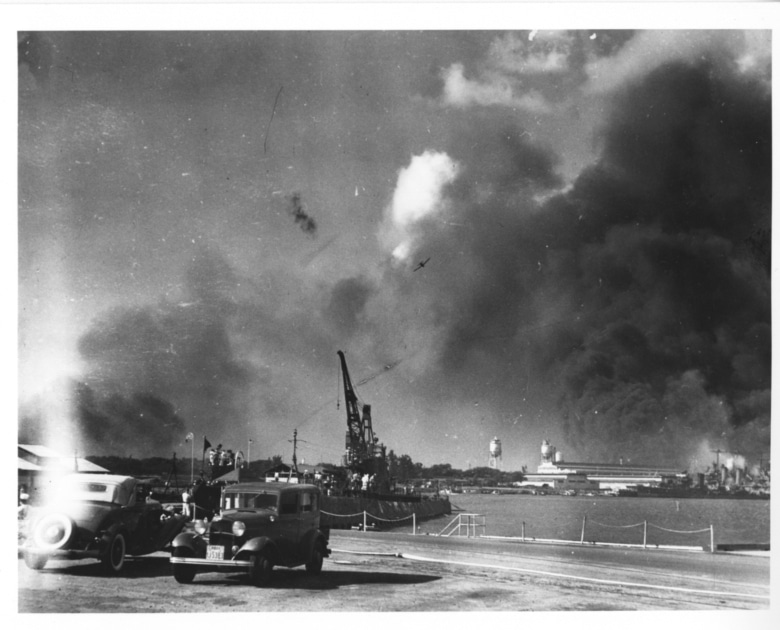
The 7th of November 1941 was a fateful day. It was the day Japan attacked Pearl Harbour and forced the US into joining World War II, which turned the tide on the respective fortunes of the Allies, Nazis and Japan themselves.
To those on the outside, it appeared to be an irrational decision; the US was keeping itself out of the war in Europe and was tending towards a strategy of isolationism. By attacking the US the Japanese brought the full force of the US against themselves. So why did they do it?
To the Japanese it was a rational decision; Japan was embarking on their own period of imperialism, wishing to extend its control into the Far East they lacked the natural resources to enable it, particularly oil. The (ultimately flawed) logic was that by neutralising the US in the Pacific they would be free to seize control and the US would not be wished to be drawn into a war so the two sides would negotiate peace.
The rest is history.
A precursor to modern jetliners, in the 1930s airships were the ultimate in luxury travel; they could take passengers across the Atlantic in a relatively fast time of 60 hours. They were expected to be the future of travel and the German-made Zeppelins were the best in class. Using helium to fill the airships was known to be safer because it is less flammable, but, due to restrictions on importing helium from the US, it was decided to use hydrogen to fill the Zeppelins. The German manufacturers justified their decision to use the more flammable gas due to their sound safety record up to that point and the lower cost of hydrogen.
On the 6th of May 1937, the largest Zeppelin, the Hindenburg, burst into flames upon docking in New Jersey. The cause of the spark that ignited the hydrogen was not clear but had hydrogen not been used 37 people would not have died in the explosion.
Money & Emotion Are Inseparable
You will probably have many examples of decisions that you have seen people make that appear irrational. You would never do that, so why does anybody? The point is to the person making them they are entirely rational because nobody makes irrational decisions intentionally. Especially when it comes to money.
Despite being only a medium to exchange value for goods and services, money comes tied up with our full range of emotions: fear, greed, envy and lust being the big hitters.
The person who sells their investment at the bottom of a market crash does so for fear of not having enough money in the future. To them, it is rational to stop the losses so they don’t lose it all.
The person who has lots of money but doesn’t like spending it does so because they are worried they will run out. To them, it is rational to be fearful of not having enough so choosing to live frugally makes sense.
The person who lives for today without thought for the future does so because they don’t believe that the future will come. To them, it is rational to make the most of now because they may get hit by a bus tomorrow.
The person who builds up unsustainable credit card debt to fund a lifestyle does so because they attach self-esteem to what they are seen wearing, the car they drive and the holidays they have. To them, it is rational to spend money to feel good about themselves.
As outsiders, we can see the flaw in other people’s behaviour but we can’t look inside to our own flawed thinking. It requires the pain to exceed the benefit or someone to point out the irrationality before we can see another way.
If and when you do get to that point of realising it that’s the breakthrough. The next stage is to understand what practising alternative money behaviours is beneficial.
If you want to discuss how you can improve your money decisions contact me.







